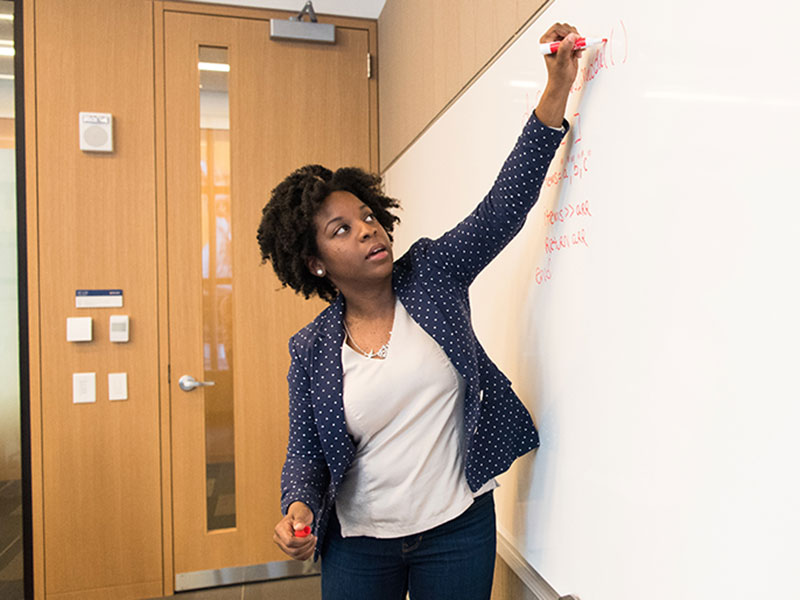Foreword from Vice-President, Equity and Community Inclusion Dr. Denise O’Neil Green

- Letter from President Dr. Mohamed Lachemi
- Foreword from Vice-President, Equity and Community Inclusion Dr. Denise O’Neil Green
- Executive Summary
- Interview Methodology
- The Student Experience and Recommendations
- Staff and Recommendations
- Faculty and Recommendations
- Office of the Vice-President, Equity and Community Inclusion
- Conclusion

"It is our responsibility to combat these inequities to create a real, genuine culture of inclusion at TMU where everyone feels that their dignity is protected."
Universities are often considered places of discovery, where people are encouraged to think critically and freely, and where education and research transform lives. Many perceive higher education as being progressive and inclusive, yet what the research shows is that we appear better on paper than in daily practice.
Through their scholarship and service to our multiple communities, faculty and staff at TMU have the power to dramatically change students’ lives for the better. By intentionally contributing to a more accessible, diverse and inclusive campus, the onus is on all of us to work together in cultivating an environment:
- where everyone feels they belong;
- that is reflective of our school’s entire population; and
- where people feel welcomed, valued, seen and heard.

Simply put, discrimination in any form cannot be tolerated on our campus.
As enrolment rates have demonstrated, Toronto Metropolitan University continues to be the university of choice. In recent years, we have also seen our profile elevated as a leader in equity, diversity and inclusion among universities. As equity, diversity and inclusion leaders, we cannot, therefore, be complacent. We must continuously strive to make the TMU experience positive for everyone.
It is for this reason that the university conducted the Anti-Black Racism Campus Climate Review.
The term ‘anti-Black racism’ was first used in a Canadian context by Dr. Akua Benjamin (Professor Emeritus and former Director of TMU's School of Social Work). It refers to the ways in which Black/African Canadians experience racism, and the historical legacy of slavery in Canada. Dr. Benjamin’s work “seeks to highlight the unique nature of systemic racism on Black Canadians and the history as well as experiences of slavery and colonization of people of Black-African descent in Canada.”
Anti-Black racism is defined as policies and practices embedded in Canadian institutions that reflect and reinforce beliefs, attitudes, prejudice, stereotyping and/or discrimination that is directed at people of African descent and is rooted in their unique history and experience of enslavement and colonization here in Canada.

The purpose of this Anti-Black Racism Campus Climate Review is to share the real-life experiences of our Black students, faculty and staff, and to better understand the realities they experience with anti-Black racism in a Canadian institution, so that they can thrive academically, professionally and personally.
In this report, you will discover that for a number of our Black students, racial discrimination remains prevalent. It impacts their grades, confidence, sense of security, mental health and ultimately, their desire to graduate from TMU, despite our persistent efforts to make our campus more inclusive.
Staff at TMU raised concerns about pay disparity as a day-to-day reality. They also reported concerns about promotions and career progression. Black faculty participants reported facing burdens associated with being underrepresented in their departments, including disproportionate mentorship responsibilities and greater demands of their time.
No university is immune to the long-standing impacts of racism and racial discrimination, even in Canada. All academic institutions struggle with racial issues. However, it is our responsibility to combat these inequities to create a real, genuine culture of inclusion at TMU where everyone feels that their dignity is protected.
As we reflect on our progress over the past 10 years, we can see that we have made significant strides in a positive, unifying direction. It was the Toronto Action Plan to Confront Anti-Black Racism in 2017 that stated, “Eradicating anti-Black racism is not a task that [institutions] alone can do. This is collective work. It requires mutually reinforcing efforts from all orders of government, institutions, businesses, schools, community agencies and individuals. That is how sustainable, long-term, societal impact will be achieved.” This is why we are appealing to our Toronto Metropolitan University community—students, faculty and staff—to read this report and join us to ensure that TMU becomes a more inclusive environment for all.
I look forward to working with and hearing from every member of the TMU community as we work to disrupt and dismantle systems of oppression and anti-Black racism that are affecting our students, faculty and staff, while we work together to build a stronger and more vibrant and inclusive TMU community.
Dr. Denise O’Neil Green
Vice-President, Equity and Community Inclusion